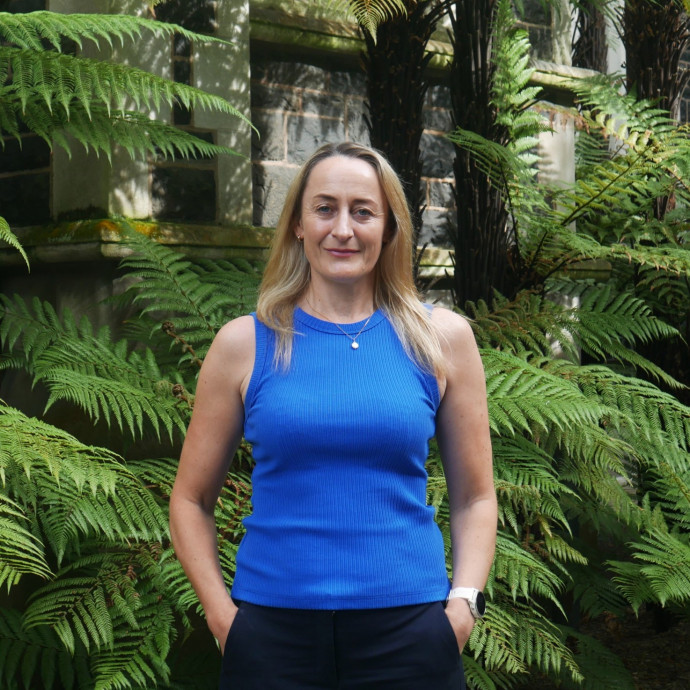Rachel Purcell

2024: Dr Rachel Purcell of Ōtākou Whakaihu Waka University of Otago has been awarded a New Zealand Mana Tūānuku Research Leader Fellowship to study how the microorganisms naturally living on and in humans influence the development of colorectal cancer, and whether this offers new pathways for the diagnosis and treatment of patients
After completing her Bachelor and Masters degrees, Dr Purcell entered the workforce in a diagnostic laboratory. She then completed her PhD research at the University of Otago, Christchurch. Following the loss of her home in the Christchurch earthquake, Dr Purcell took up a project manager position at the International Agency for Cancer Research in Lyon France, where she coordinated the publication of the World Health Organization's “Blue Books” of Tumour Classification. Becoming a Research Fellow at the University of Otago Department of Surgery in 2018, Dr Purcell then received a Sir Charles Hercus Fellowship from the Health Research Council of New Zealand in 2019. Now a Senior Research Fellow and Head of Clinical and Translation Research in her department, Dr Purcell has received various awards and honours for her research on host-associated and environmental microbial communities.
We host a population of microorganisms on and inside us, known as the human microbiome. Our microbiome plays crucial roles in maintaining our health by supporting immunity, energy metabolism, and overall physiological balance. However, disruptions in the microbiome have been linked to numerous diseases, including cancer. Colorectal cancer, also known as bowel cancer, is a major health concern in Aotearoa New Zealand with over 3,000 new cases annually. Māori and Pacific Peoples experience worse outcomes and there is a worrying increase in occurrence in younger people. Dr Purcell has developed innovative computational tools that integrate gene expression, microbiome data, and individual patient information. This approach has uncovered new connections between the microbiome and cancer cells. Dr Purcell will explore how the microbiome can boost the effectiveness of immunotherapy which uses the body’s own immune system to fight cancer. She will also determine whether genetic information from bacteria circulating in the patient’s blood indicates the spread of cancer. Given that diet can affect the balance of the gut microbiome, Dr Purcell will also investigate whether dietary changes can improve treatment outcomes by modifying the gut microbiome. Using these approaches, Dr Purcell’s research aims to provide new therapies and predictive tools for colorectal cancer, ultimately leading to better health outcomes and a deeper understanding of the microbiome's role in cancer.

Dr Purcell and team members while attending the International Human Microbiome Consortium Congress in Rome, Italy
